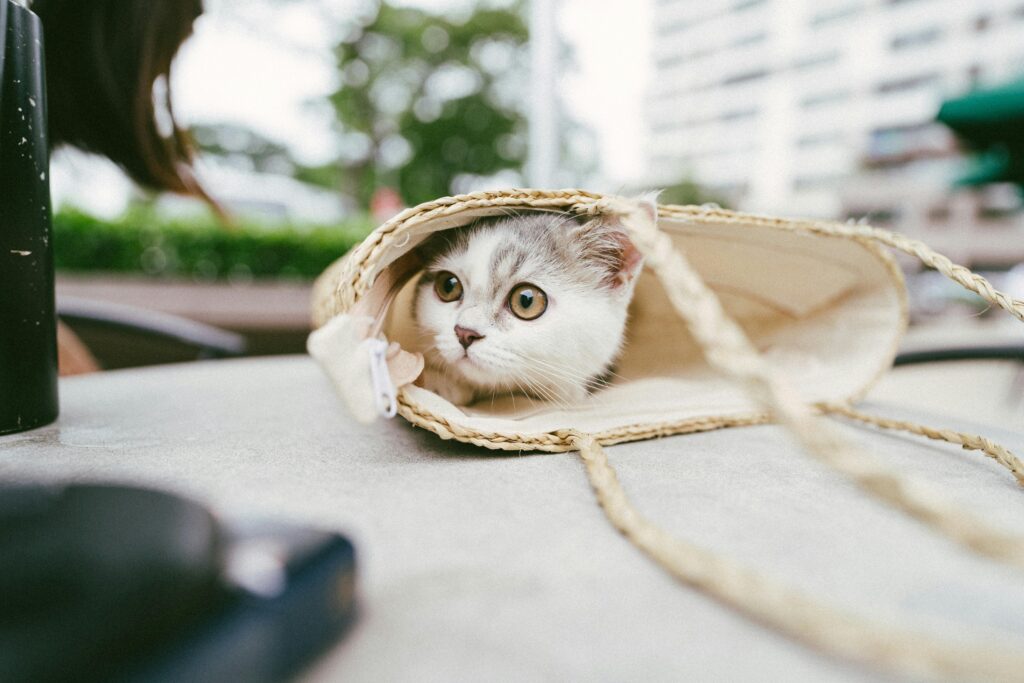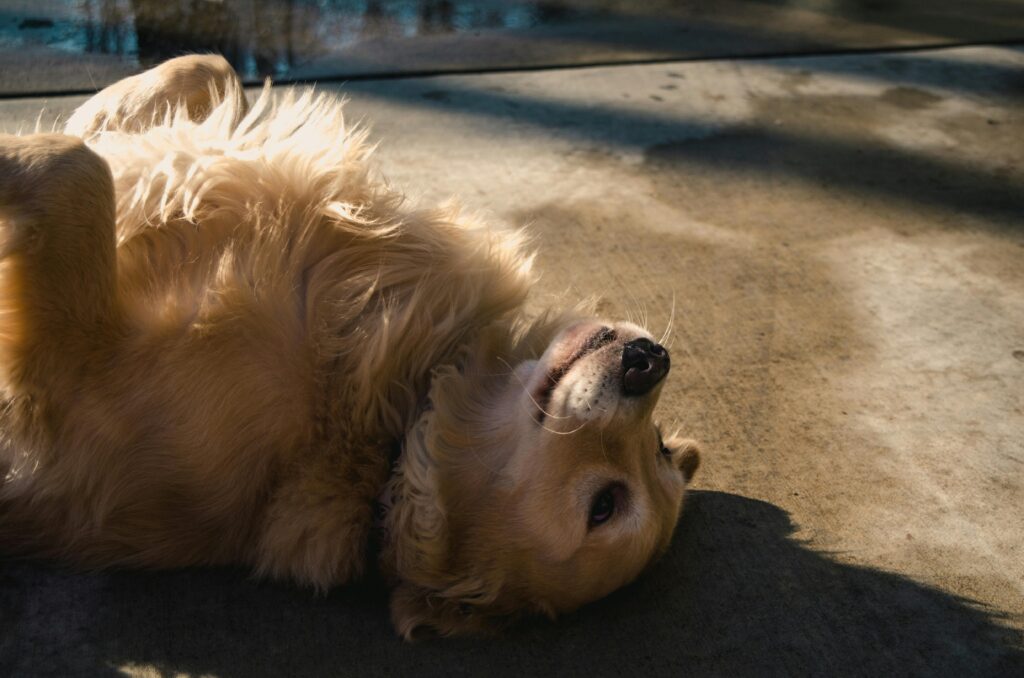1. “Dog Days of Summer”

Ever wonder why the hottest days of summer are referred to as “dog days”? This phrase actually dates back to ancient Rome, when people believed the heat came from the “dog star,” Sirius, which rises in conjunction with the sun during the summer. It has nothing to do with dogs lounging in the heat, but now we associate it with the laziness of both the weather and our pups!
2. “Let the Cat Out of the Bag”

The origin of this phrase is steeped in old-time trickery. In medieval markets, unscrupulous vendors would sometimes sell a pig in a sack but secretly substitute it with a less valuable cat. If someone let the “cat out of the bag,” the scam was revealed. Now it means to accidentally reveal a secret.
3. “Raining Cats and Dogs”

Where did this weird weather term come from? One theory is that in 17th-century England, heavy rainstorms would wash dead animals into the streets, giving the illusion that it had literally rained cats and dogs. Another idea is that it originates from Norse mythology, where cats and dogs were associated with storms. Either way, it’s a wild mental image!
4. “Top Dog”

Being the “top dog” today means being the best, but it comes from the world of dogfighting. The “top dog” was the dog who won in the fight, while the “underdog” was the one that lost. Thankfully, we now use it in a much more positive sense!
5. “Like Herding Cats”

Anyone who’s ever tried to get a group of cats to cooperate knows it’s impossible! This phrase comes from the notoriously independent and unpredictable nature of cats, making them the least likely creatures to be herded anywhere. It’s the perfect metaphor for managing something that’s wildly chaotic.
6. “Curiosity Killed the Cat”

This saying, often used to warn against nosiness, originated as “care killed the cat,” with “care” meaning worry or sorrow. Over time, it evolved into “curiosity,” highlighting the dangerous consequences of sticking your nose where it doesn’t belong—just like a cat that might get into trouble.
7. “Let Sleeping Dogs Lie”

This phrase comes from the idea that it’s better not to disturb a calm situation. Much like a sleeping dog that might snap or bite if startled, the saying suggests it’s better to leave things alone rather than stir up trouble.
8. “Cat Got Your Tongue?”

This odd phrase is often used when someone is unusually quiet. One theory is that it originated from an ancient punishment where a liar’s tongue was cut out and fed to cats. Another (less gruesome) theory is that it comes from sailors who were whipped with a “cat-o’-nine-tails” and were too shocked to speak.
9. “Hair of the Dog”

This curious expression refers to drinking as a hangover cure. The phrase comes from an old folk remedy that suggested treating a dog bite by placing hair from the same dog onto the wound. Now, it’s used metaphorically, suggesting a little of what harmed you might also cure you!
10. “Every Dog Has Its Day”

This phrase comes from ancient Greek playwright Euripides, who said even the lowliest creatures deserve a chance at success or revenge. It’s a reminder that, much like dogs, everyone will get their moment to shine.
11. “You Can’t Teach an Old Dog New Tricks”

The saying, which dates back to the 1500s, suggests that it’s difficult to teach someone new skills as they get older. While it’s true that teaching new habits can be challenging, this one might be a bit unfair to older dogs, who can still learn plenty!
12. “Fight Like Cats and Dogs”

We all know the classic image of a cat and dog at each other’s throats, which is how this phrase came to represent bitter feuds. Interestingly, not all cats and dogs fight, but the saying stuck thanks to the natural rivalry we imagine between them.
13. “Dog Eat Dog World”

This phrase paints a picture of ruthless competition, where everyone is out for themselves. Its origins likely come from the animal kingdom, where survival of the fittest is a harsh reality. Today, it’s used to describe cutthroat environments, especially in business or politics.


